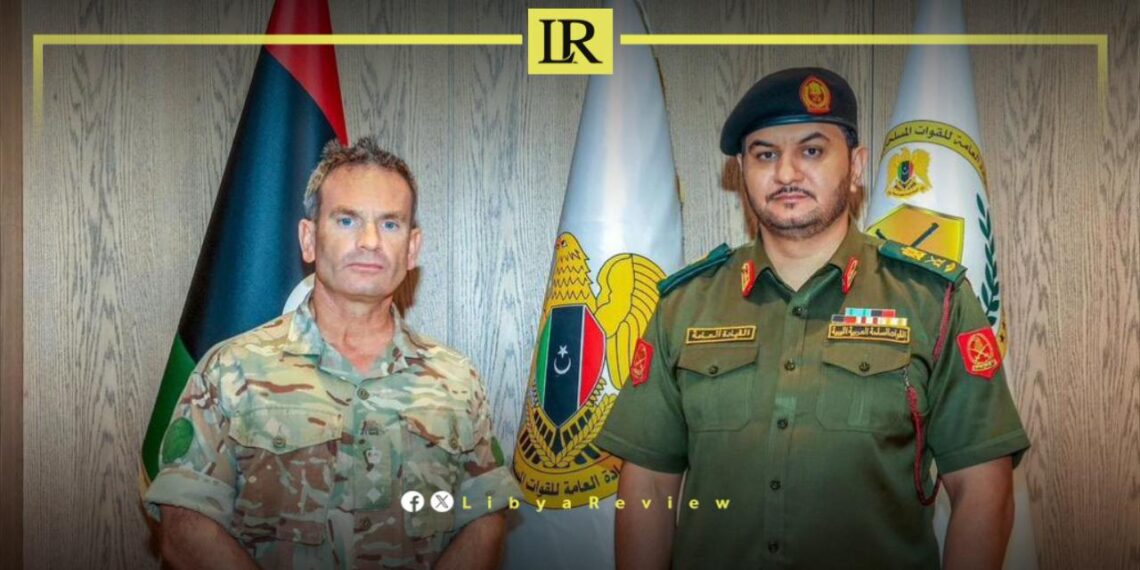On Sunday, Saddam Haftar, Chief of Ground Forces of the Libyan National Army (LNA), met with Defence Attaché Colonel Matt Ketterer from the British Embassy.
The discussions focused on counter-terrorism, border security, and the essential cooperation between Libya’s eastern and western regions.
This meeting in Benghazi was the first between Ketterer and Haftar since Haftar assumed his role as Chief of Ground Forces in mid-May.
The British Embassy highlighted the significance of the event on its “X” platform, noting, “The meeting between Defence Attaché Colonel Matt Ketterer and Chief of Ground Forces Saddam Haftar is a mutual opportunity to discuss counter-terrorism, border security, and the importance of military cooperation between the eastern and western regions.”
Libya has faced turmoil since the fall of Muammar Gaddafi in 2011, resulting in a fragmented nation with rival factions vying for control. The country is primarily divided between the Government of National Unity (GNU) in Tripoli and the LNA led by Field Marshal Khalifa Haftar in the east.
The UK’s engagement underscores its commitment to supporting Libya in its fight against terrorism and efforts to stabilize its borders. Given Libya’s strategic location and extensive, porous borders, the threat of terrorism and smuggling remains a critical challenge for both regional and international security.
Since taking on his role, Saddam Haftar has prioritized counter-terrorism and border security, recognizing their importance in stabilizing Libya and curbing the influence of extremist groups exploiting the country’s political fragmentation.
The UK’s involvement highlights its strategic interest in Libya’s stability, acknowledging that a stable Libya is vital for regional security in the Mediterranean and North Africa.
The dialogue between Haftar and Ketterer is expected to pave the way for more robust military cooperation and intelligence sharing. It also sets the stage for potential joint operations aimed at neutralizing terrorist threats and securing Libya’s borders.
As Libya continues to navigate its complex political landscape, international partnerships such as this are essential for bolstering its security infrastructure and moving towards a more stable and unified state.


